Democrats have many reasons for seeking to scuttle the Gorsuch nomination. Everything we know about Judge Gorsuch’s background and philosophy justifies liberals’ fears that he is an ideological extremist likely to welcome the opportunity to rule from the bench. Should Donald Trump be able to replace Justice Kennedy, Justice Ginsberg or Justice Breyer, all of whom are far past normal retirement age, with another Gorsuch-like appointment, precedents that liberals cherish, like Roe v. Wade (abortion) and Grutter v. Bollinger (affirmative action) would be vulnerable to overturning, and should Democrats control the presidency, House and Senate after 2020, important initiatives might be declared unconstitutional, just as Obamacare would have been had there been an additional conservative vote. Even with no further vacancies to be filled, the Gorsuch appointment means that limits on gerrymandering and attempts to limit the influence of money on politics are most likely doomed; efforts to suppress minority voting through increasingly onerous ballot suppression efforts will withstand constitutional scrutiny; weakening of the “No Establishment” of religion clause can be anticipated; and business-friendly rulings on matters such as mandatory arbitration clauses and union rights will continue apace. In addition, Judge Gorsuch was hardly forthcoming in his confirmation hearings, disingenuously avoiding truths about his judicial philosophy and likely decisions. For some Democratic senators, such evasion is disqualifying.
The above are reasons for Democrats to vote “no” on the Gorsuch nomination, and with a different Supreme Court confirmation culture those reasons might be a basis to filibuster. But Democrats did not filibuster the proposed appointments of Justices Scalia, Thomas, and Alito, and each of them could have been opposed for similar reasons. Their ideological views and likely hostility to liberal democratic readings of the Constitution were as predictable as they are with Gorsuch, and, like Gorsuch, they dodged questions at their confirmation hearings when honest answers would have revealed unpopular views and biases. If Scalia, Thomas, and Alito were not so far out of the constitutional mainstream as to justify a filibuster, neither is Gorsuch. Indeed, if Democrats had to choose, I expect many would prefer Gorsuch to a Scalia, Thomas, or Alito.
More than a century ago, Peter Finley Dunne’s Mr. Dooley observed, “The Supreme Court follows the election returns.” This is not a bad thing. The Court, our polity’s least democratic ruling institution, should recognize where the nation is politically, and its membership should similarly, if loosely, reflect the political trends captured in the nation’s choice of presidents. So Gorsuch’s now-almost-mainstream Republican views cannot justify a filibuster. But the principle that should protect Gorsuch from a filibuster justifies opposition. Although there is considerable randomness in the occasion of Supreme Court vacancies, over time one can expect the Court’s composition to reflect—with some lag—the nation’s penchant for electing presidents of different political persuasion. But for this to happen, the implicit rule that presidents get to fill vacancies occurring during their term must be respected. Senators McConnell and Grassley, with the consent of their Republican colleagues, subverted this rule when they refused to give Judge Merrick Garland a hearing. Allowing such obstructionism poses a greater threat to our democratic culture and Senate traditions than the (not unprecedented) filibuster of a Supreme Court nominee. The Republican refusal to act on Garland should have consequences. It is not a “get over it” thing.
Democrats should filibuster the Gorsuch nomination and future Trump nominations until such time as Judge Garland is given a hearing by the Senate Judiciary Committee and is voted on by the full Senate. No other reason to filibuster is necessary, nor should any be given. Democrats should also agree not to filibuster a resubmission of the Gorsuch nomination, or a comparable Trump nomination, if Merrick Garland has the opportunity for the hearing and vote he, and the nation, deserves. It is not too late to do this. President Trump could withdraw the Gorsuch nomination and nominate Garland, with events proceeding from there. Senate Democrats, the Senate and the nation would all come out ahead, and costs to Republicans would most likely be small.
If Democrats planned to use the filibuster only to guarantee Garland the hearing and vote he had been denied, they would defuse the Republicans’ effort to portray the opposition to Gorsuch as ideologically driven. The focus would shift from their sure-to-fail filibuster threat to the ways in which McConnell and Grassley subverted the Senate’s cultural and small “d” democratic understandings. Institutionally it would reaffirm the Senate’s obligation to fully consider a president’s Supreme Court nominations at least until the general election campaign commenced, and it would keep hostile future Senates from further pushing back the date from which a president’s Court nominations would be ignored. Needless to say, that hostile Senate could as easily be dominated by Democrats as by Republicans.
Moreover, in the current context Republicans most likely would pay only a small price for respecting a conditionally contingent filibuster and considering a Garland nomination. The principle having been established, Judge Garland might not accept Trump’s nomination, and Judge Gorsuch could be immediately re-nominated and approved. If Garland accepted a nomination, more time would be needed to dispose of the issue, but the results are predictable. Garland would be voted out of Committee without a positive recommendation, and his chances of Senate confirmation would be almost nil. As troubling as some might find this, had Garland been given a hearing following Obama’s nomination, the result most likely would have been the same. Republicans had a larger majority in the last Senate than in this one. The Republican’s refusal to open hearings on Garland probably reflected an effort to protect themselves from going on record against a highly qualified, tough-on-crime Supreme Court nominee more than it did the likelihood that if hearings were held Garland would be confirmed.
I harbor no illusions that my suggestion will be accepted. Some may see in it a mere charade even though, as with other political charades, the principles affirmed are important ones. Moreover, Democrats who committed themselves to filibuster based on Judge Gorsuch’s ideological deficiencies would be reluctant to sacrifice the appeal that their anti-Gorsuch arguments have with their constituencies and for their concomitant fundraising opportunities. Some Republicans, on the other hand, relish the chance to put it to the Democrats with the nuclear option, while those who do not, still feel the tug of party loyalty and would like to have Gorsuch seated on the Court before the current Supreme Court year has ended. If this is not enough, the chance that President Trump would cooperate appears entirely fanciful.
The tragedy here and the threat to our democracy lies not in the fact that Merrick Garland was denied the hearing that twenty years ago he would have had, nor does it exist because 41 Senate Democrats are ready to filibuster Gorsuch, leaving the Republicans prepared to overturn an important brake on judicial extremity. Rather it lies in the further advance of political polarization and the degree to which our politics has become more and more about pure power—shared values and traditions be damned.
The Brookings Institution is committed to quality, independence, and impact.
We are supported by a diverse array of funders. In line with our values and policies, each Brookings publication represents the sole views of its author(s).

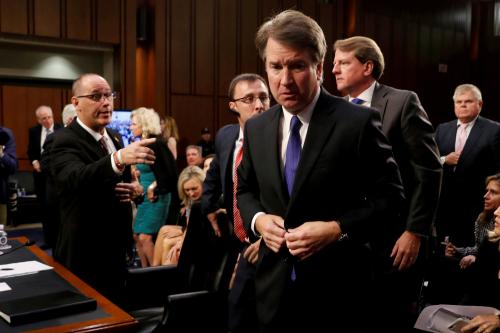
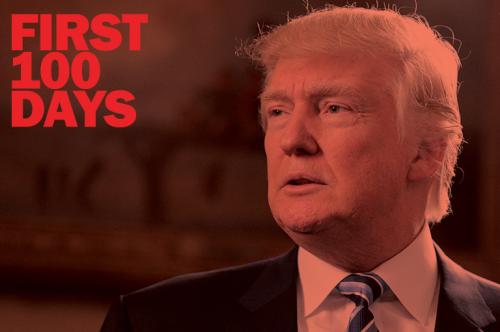
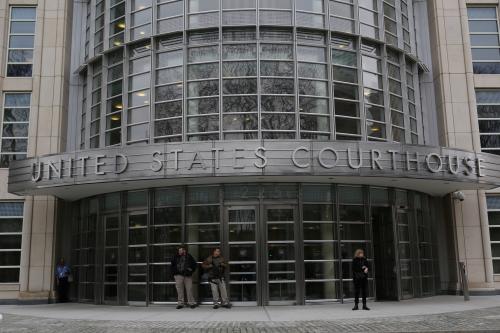

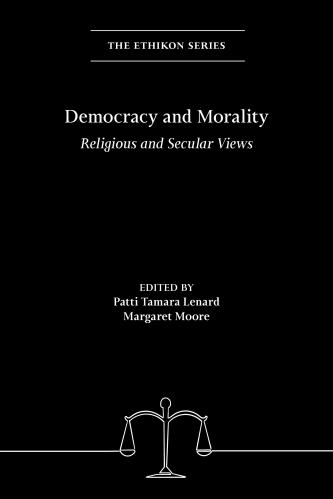
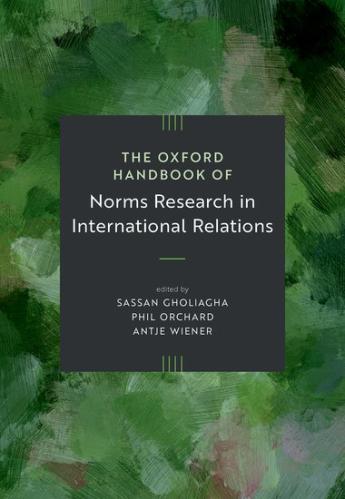




Commentary
Filibustering Gorsuch: Right action, wrong reasons
April 5, 2017